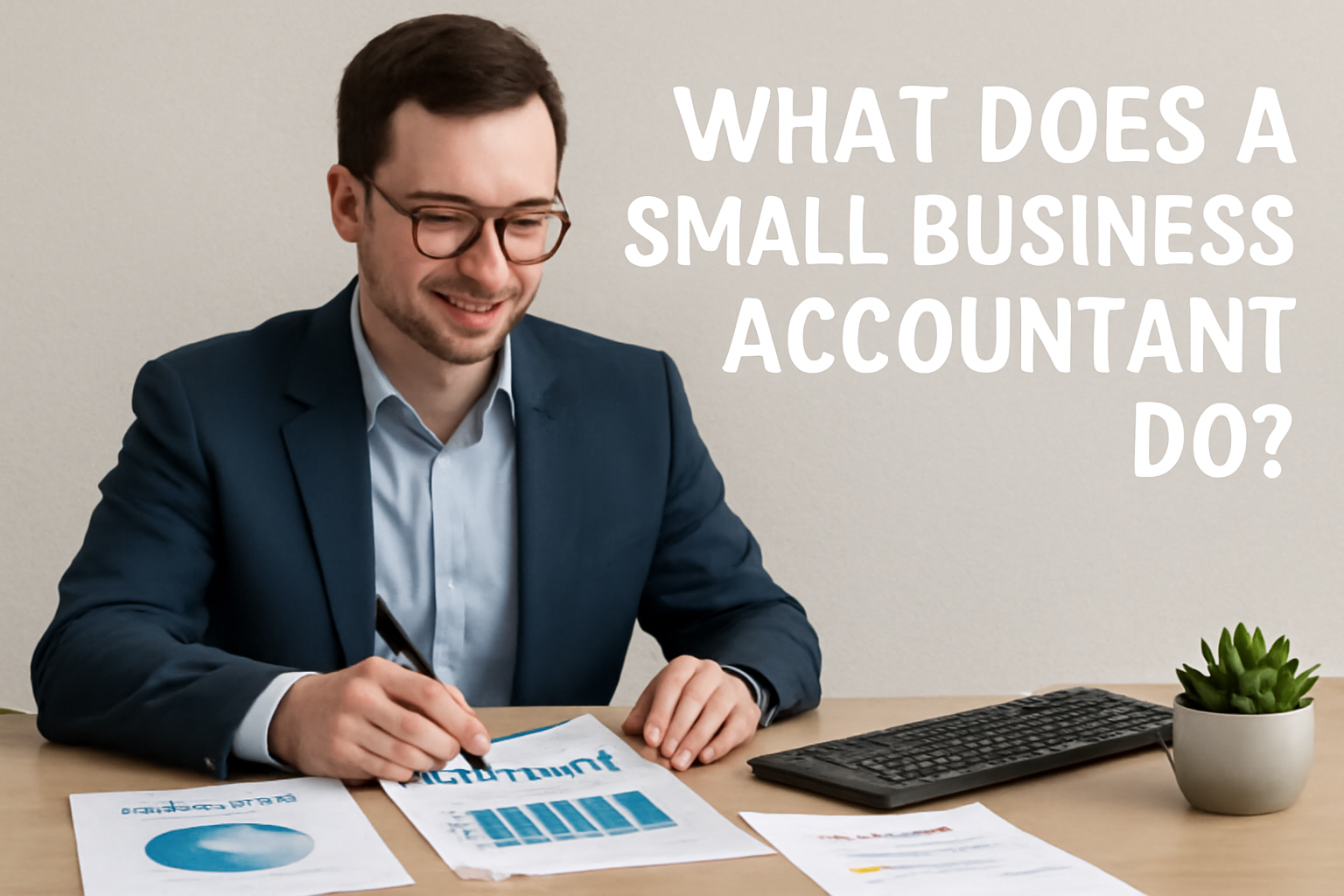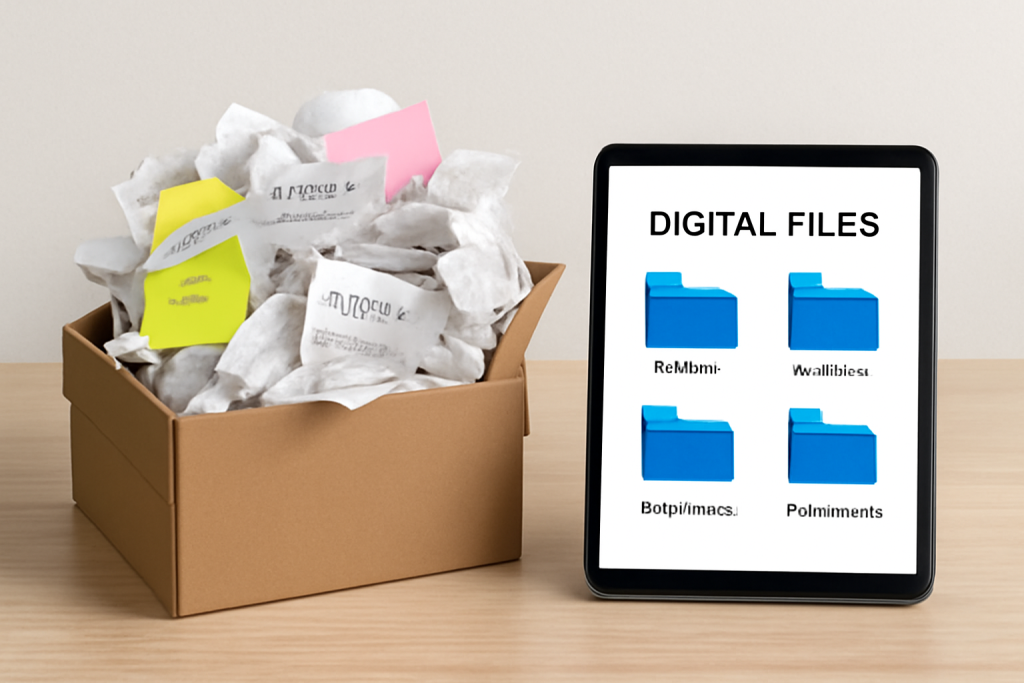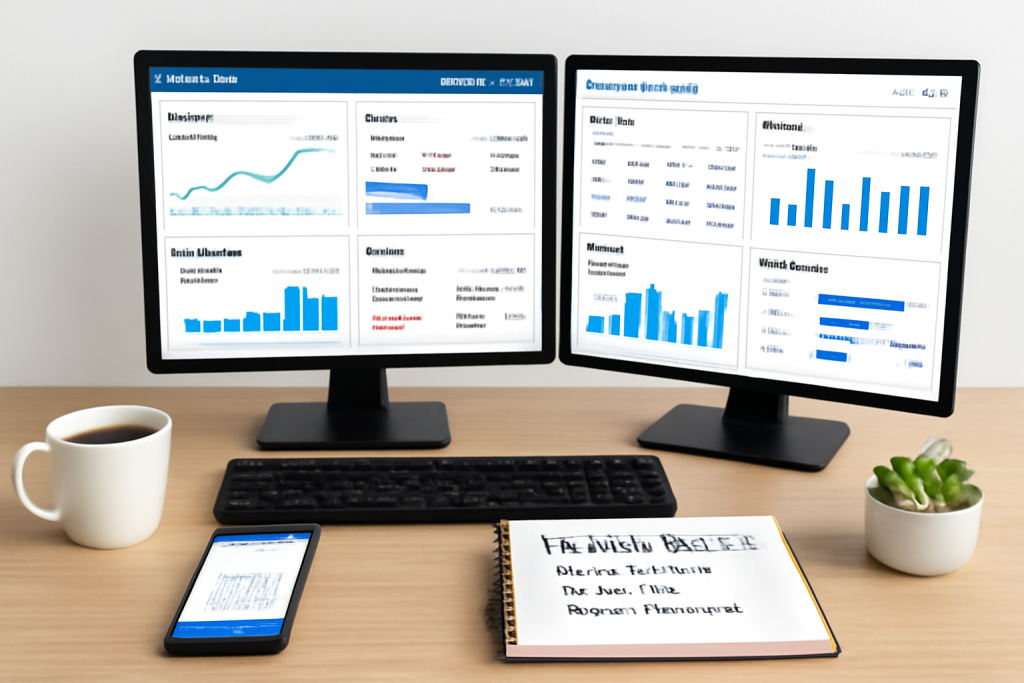
Picture this: You’ve just opened your dream café. The coffee machine’s gleaming, the scones are perfect, and customers are queuing around the block. Then Tuesday arrives. Along with it comes a shoebox full of receipts, three different tax forms you’ve never seen before, and a growing sense that you might have accidentally committed some sort of financial crime by accepting cash payments.
Welcome to small business ownership, where the romance of entrepreneurship meets the harsh reality of… well, maths. Lots and lots of maths.
This is precisely where a small business accountant becomes less of a luxury and more of a lifeline. But what exactly do these financial wizards do when they’re not buried in spreadsheets? And more importantly, why should you care enough to actually hire one?
If you’re looking for comprehensive accounting services, understanding what these professionals actually do daily can help you make an informed decision about your business’s financial future.

The Money Whisperer: Beyond Number Crunching
Most people think accountants just add up numbers and file forms. That’s like saying surgeons just make cuts – technically true, but missing about 90% of the actual skill involved.
A small business accountant is part detective, part fortune teller, and part therapist. They’re the ones who spot that you’re spending £200 monthly on office supplies when you work from home (those Amazon purchases add up, don’t they?). They’re also the ones who’ll gently explain why buying a hot tub as a “business expense” might raise some eyebrows at HMRC.
The Daily Grind: What Actually Happens
Your accountant’s day doesn’t start with dramatic spreadsheet revelations. It begins with coffee (lots of it) and a systematic approach to keeping your business financially healthy. Here’s what that looks like:
Morning: Reviewing your transactions from the previous day. Did you record that client payment? What about the petrol receipt you photographed but never categorised? Your accountant is essentially playing detective with your money trail.
Mid-morning: Reconciling bank statements. This isn’t just matching numbers – it’s ensuring every penny has a purpose and a place in your business records.
Afternoon: Tax planning. Not the boring “let’s see what we owe” kind, but the strategic “how can we legally pay less” variety. This is where experience pays dividends, and where expert tax compliance services become invaluable.
The Invisible Work That Saves Your Bacon
Here’s what most business owners don’t realise: the best work your small business accountant does is the stuff you never see. It’s the problems they prevent, not just the ones they solve.
Take VAT registration, for instance. Miss the threshold by even a day, and you’re looking at penalties that could fund a small holiday. Your accountant tracks this automatically, alerting you months before you hit the £90,000 limit. They’ll also advise whether voluntary registration might actually save you money – counterintuitive, but often true. For detailed guidance on VAT compliance and registration, professional advice is essential.
Then there’s the minefield of employee rights and auto-enrolment pensions. Get this wrong, and The Pensions Regulator will send letters that make tax demands look friendly. A decent accountant handles this seamlessly, setting up schemes and managing contributions without you losing sleep. Professional auto-enrolment services can save you from regulatory headaches.
Compliance Tasks and Penalties Table:
| Task | Frequency | Disaster Level if Missed | Typical Cost to Fix |
|---|---|---|---|
| VAT Returns | Quarterly | High | £200+ escalating penalties |
| Corporation Tax | Annually | Severe | £1,000+ plus interest |
| Payroll Submissions | Monthly | Medium | £100-£300 per error |
| Auto-enrolment | Ongoing | High | £500+ escalating penalties |
| Annual Returns | Annually | Medium | £150+ strike-off risk |
The Crystal Ball Effect: Planning Your Financial Future
I’ve seen business owners treat their accountant like a historian – someone who explains what happened last year. That’s backwards thinking. The real value lies in forward planning.
A skilled small business accountant doesn’t just tell you what you earned; they predict what you’ll need. They’ll model different scenarios: what happens if you hire two more staff? What about that expansion into online sales? How will Brexit affect your import costs?
This forecasting isn’t guesswork. It’s based on your historical data, industry trends, and economic indicators. When Ask Accountant works with small businesses, they’re not just processing last month’s receipts – they’re building roadmaps for sustainable growth through strategic business advice.

The Services That Actually Matter
Let’s be brutally honest about what services you actually need versus what sounds impressive in marketing brochures:
Essential Services:
- Monthly bookkeeping (not yearly catch-ups)
- Tax planning and preparation
- Payroll management
- VAT compliance
- Business advice that goes beyond “spend less, earn more”
Nice-to-Have Services:
- Strategic business planning
- Inheritance tax planning
- CIS claims and refunds for construction businesses
- Proactive tax advisory solutions
The difference? Essential services keep you legal and operational. Nice-to-have services make you profitable and future-proof.
When Things Go Wrong: The Insurance Policy You Didn’t Know You Had
Every business owner has a disaster story. The client who didn’t pay. The supplier who disappeared. The month when everything broke simultaneously.
Your small business accountant is your financial first-aider during these crises. They’ll restructure payment plans, negotiate with creditors, and find cash flow solutions you never knew existed. More importantly, they’ll do this without the emotional attachment that makes you want to throw your laptop out the window.
I once worked with a café owner who faced a £15,000 unexpected tax bill. Instead of panic (which was my initial reaction), the accountant immediately identified three separate relief schemes and a payment plan that spread the cost over two years. Crisis averted, business saved. Understanding HMRC’s approach to investigations can help you prepare for such situations.
The Technology Revolution: Accounting in the Digital Age
Modern accounting isn’t about ledgers and calculators anymore. Cloud-based software syncs your bank accounts automatically. Receipt scanning apps eliminate shoeboxes. Real-time reporting means you know your profit margins before you finish your morning coffee.
But here’s the catch: technology amplifies good accounting practices and disastrous ones equally. A small business accountant who understands both traditional principles and modern tools becomes exponentially more valuable. Cloud accounting solutions represent the future of business financial management.
For additional guidance on digital transformation, HMRC’s Making Tax Digital initiative shows the direction all businesses are heading.
Traditional vs Modern Accounting Methods:
| Traditional Method | Modern Approach | Time Saved |
|---|---|---|
| Manual receipt filing | Receipt scanning apps | 5-10 hours monthly |
| Quarterly book reconciliation | Real-time bank feeds | 15-20 hours quarterly |
| Manual payroll calculations | Automated payroll software | 3-5 hours monthly |
| Paper-based filing | Cloud storage systems | Countless hours annually |

The Cost-Benefit Reality Check
“I can’t afford an accountant” is the most expensive sentence in small business. Let me show you the maths:
Average small business accountant fee: £150-£300 monthly Average DIY accounting mistakes: £500-£2,000 annually Average time saved: 10-15 hours monthly Your hourly rate: (Insert your actual earning potential here)
The equation solves itself. You’re not paying for someone to add up numbers – you’re buying time, expertise, and peace of mind.
The Human Factor: Why Personality Matters in Accounting
Here’s something nobody tells you: your relationship with your accountant matters more than their qualifications. You need someone who understands your business and communicates clearly.
The best small business accountant is part advisor, part educator. They’ll explain why certain expenses aren’t deductible without making you feel like a criminal. They’ll suggest efficiency improvements without insulting your current systems.

Red Flags: When Your Accountant Isn’t Working
Not all accountants are created equal. Warning signs include:
- Radio silence: If they only surface at year-end, you’re paying for a service, not a partnership
- Jargon overload: If you need a translator for their explanations, find someone else
- Reactive approach: If they’re always responding to problems instead of preventing them, you’re not getting full value
- One-size-fits-all: If their advice sounds identical for every client, they’re not paying attention to your specific needs
The Selection Process: Finding Your Financial Soulmate
Choosing a small business accountant isn’t about finding the cheapest option – it’s about finding the right fit. Ask potential candidates:
- How many clients do you personally manage?
- What’s your typical response time for urgent queries?
- Can you explain your fee structure in plain English?
- How do you stay current with tax law changes?
- What business advice services do you offer beyond compliance?
The answers reveal whether you’re dealing with a professional partner or a processing service.
Future-Proofing Your Business: The Strategic Advantage
The most successful small businesses treat their accountant as a strategic advisor, not a necessary evil. They involve them in major decisions, seek their input on new ventures, and use their expertise to identify opportunities.
For businesses in London, particularly around areas like Merton High Street, this local knowledge becomes invaluable. Understanding regional business rates, local authority requirements, and area-specific opportunities can significantly impact your bottom line. You can learn more about our experienced team and their local expertise.
Making the Investment: Why Now Matters
Timing matters in business, and accounting is no exception. The best time to engage a small business accountant is before you need them desperately. Early engagement means:
- Systems established correctly from day one
- Tax planning integrated into business planning
- Problems identified and resolved before they become crises
- Growth strategies developed based on solid financial foundations
Quick Action Steps:
- Audit your current financial management – are you spending more than 2 hours weekly on bookkeeping?
- Calculate your true hourly rate – include all the time you’re not earning while doing admin
- Research local accountants – personal recommendations beat online reviews every time. Check their full range of services to ensure they match your needs
- Schedule consultations – most accountants offer free initial meetings
- Ask the right questions – focus on services, communication, and approach rather than just price
The Bottom Line: Investment or Expense?
A small business accountant isn’t a cost – they’re an investment that pays dividends in saved time, reduced stress, and increased profitability. They’re the difference between surviving and thriving, between compliance and optimisation.
Whether you’re a startup counting every penny or an established business looking for the next level of growth, the right accountant becomes an essential part of your success story. They’re not just managing your numbers – they’re managing your future.
If you’re ready to transform your business finances from a source of stress into a strategic advantage, the conversation starts with a simple phone call. The investment in professional accounting expertise isn’t just about keeping HMRC happy – it’s about building a business that works for you, not the other way around.
For expert small business accounting services, business advice, and proactive tax planning, contact Ask Accountant at 178 Merton High St, London SW19 1AY, or call +44(0)20 8543 1991. You can also explore our comprehensive resources and guides for additional business insights.
Frequently Asked Questions
Q: How much does a small business accountant typically cost? A: Fees vary widely based on business size and complexity, typically ranging from £100-£500 monthly for small businesses. The investment usually pays for itself through tax savings and time freed up for revenue-generating activities.
Q: What’s the difference between a bookkeeper and a small business accountant? A: Bookkeepers record transactions and maintain financial records. Small business accountants provide strategic advice, tax planning, and business insights beyond basic record-keeping.
Q: When should I hire a small business accountant? A: Ideally, before you start trading. At minimum, when you’re spending more than 5 hours weekly on financial admin or when your turnover approaches VAT registration thresholds. The current VAT threshold is £90,000 annually.
Q: Can I do my own accounting using software? A: Software handles data entry, but can’t provide strategic advice, tax planning, or complex compliance guidance. Most successful small businesses use software managed by professional accountants.
Q: What should I look for in a small business accountant? A: Look for relevant qualifications (ACA, ACCA, CIMA), experience with businesses similar to yours, clear communication, and a proactive approach to business advice.







